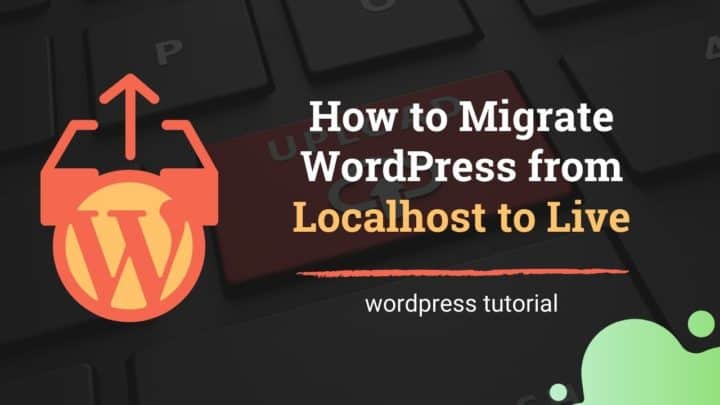This article may contain affiliate links. If you buy some products using those links, I may receive monetary benefits. See affiliate disclosure here
I first heard about blogging when Google's Blogger was so popular among personal bloggers. Back in those days, the 'Blogger vs. WordPress' debate was quite intense in the blogging world.
And by the term 'WordPress', people usually referred to WordPress.Com, where you can sign-up and create a blog right away like you do on Blogger.
Another term that often popped up was 'self-hosted WordPress', which is WordPress.Org. But individual/personal bloggers did not look much into it, as it was thought to be a choice for professional bloggers only.
- You might also like: Top 10 Blogging Platforms
I also used to think that WordPress.Com is the commercial version of WordPress, while WordPress.Org is the open-source software. And that the same people managed both. Because, in technology, it is common for a product to have both a paid version and an open-source edition. An example is Nginx, the popular web server software. Nginx Plus is the paid version, while Nginx Open Source is available for free.
But in the case of WordPress, things are not as simple as that. The #1 reason behind this misunderstanding is that they both have the same name. So in this WordPress.Com vs WordPress.Org article, I will mention the important differences and similarities between the two.
A Little Background
First let me introduce the parties involved:
1. The WordPress CMS a.k.a WordPress.Org
In the introduction above, I had mentioned that people often use the term WordPress to refer to WordPress.Com. But technically, that's not correct. 'WordPress' refers to the WordPress content management system. You can check out this Wikipedia page to confirm it.
Initially released in 2003, it is the open-source software that powers over 35% of the websites on the internet. You can read the initial release news here.
And WordPress.Org is not a place where you can sign-up and start creating a website. It's just the official website for the content management system, from where you can download the software.
The WordPress.Org website also contains information about the community. If you are a developer, you can also contribute to WordPress software in many ways.
- Released in 2003, by Matt Mullenweg and Mike Little
- Open-source project
2. WordPress Foundation
Founded in 2011 by Matt Mullenweg, The WordPress Foundation is currently responsible for taking care and ensuring the continuity of the open-source WordPress project. If you check the footer of WordPress.Org, you can see a link to donate to the Foundation to show your support.
The Foundation also holds the trademark rights for the term 'WordPress'. That means, other people, like you and I, cannot use the word commercially, especially in domain names and titles.
- Founded in 2011 by Matt Mullenweg
- Charity-based
Now, you might be thinking, then how comes WordPress.Com? Isn't it commercial? I will come to that.
3. Automattic
Automattic is a private company founded by Matt Mullenweg in 2005. And WordPress.Com is only one of their products. WooCommerce, Akismet, etc. are others. Recently, they have also acquired Tumblr, a micro-blogging platform.
And before WordPress Foundation, the trademark for the word 'WordPress' was with Automattic. Later it was transferred to the Foundation [reference], sometimes during 2010.
So I hope now you understand why both of them use the same name.
4. WordPress.Com
Finally, WordPress.Com is a platform operated by Automattic, where you can signup and create a website or blog. Think of it as a website builder like Wix, although there are differences.
The similarity is, the WordPress software also powers the WordPress.Com service. But the two are not directly associated.
The confusion comes from the common name and the common founder. Think of it like this. I can be the founder of a photography society. I can also have a company that sells cameras. Now both the entities have a common founder, that's me. But that doesn't mean the two are associated. They work independently from one another.
Many articles refer to Automattic as the company behind WordPress, which is not correct [an example]. I had done that too. Automattic holds WordPress.Com.
I hope now you got an idea about the WordPress landscape. Note that these are my personal understandings. If there are any mistakes in the information I present, please correct me.
WordPress.Com vs. WordPress.Org: Differences
Now let us discuss the differences, which can help you in deciding which one is right for you.
Hosting
WordPress.Com
Like all the other website builders like Wix and Squarespace, WordPress.Com is also a hosted platform. That means you have no choice to select your server location or specification.
They automatically deploy your site onto one of their servers, which can be anywhere in the US or other parts of the world.
WordPress.Org
As I said above, it's only the software. So you can decide where to run it. There are different types of hosting providers out there:
- Shared
- VPS
- Cloud / Cloud VPS / Managed Cloud
- Dedicated
- Managed WordPress
Out of these, shared is usually the cheapest and least powerful. It will be sufficient if you are just starting out with a small amount of traffic. And as your site grows, you can migrate your site to more powerful platforms. Dreamhost is one of the providers that offer cheap shared hosting plans that can be suitable for small blogs and websites.
Currently, this blog is hosted with Cloudways, a managed cloud hosting platform. You can also check out my article on the differences between shared hosting and cloud hosting.
Overall, self-hosted WordPress gives you the freedom to choose your hosting provider, but the responsibility of finding a good provider will be with you.
Cost of Running
WordPress.Com
The best part is that you can start a site for free. However, the features are quite limited in the free plan. It doesn't even allow connecting your custom domain. Your website address will look like 'yoursite.wordpress.com'.
There are four premium plans:
- Personal
- Premium
- Business
- eCommerce
pricing as on Nov 2020
The lowest - Personal - plan, which costs $4/mo, is enough to add your custom domain. But still, it has too many limitations. You cannot upload plugins or themes. For that, you need at least the Business plan, which goes all the way upto $25/mo.
WordPress.Org
In contrast to that, WordPress.Org is completely free. It's a GPL-licensed open source software. You can download it, and access the code.
But still, you have to find a server to run the software, which is not free. The price can be as low as $5/mo for shared hosting, or hundreds of dollars per month for a managed WordPress hosting. The latter takes care of software updates and security while you can focus on the website content.
Unlike WordPress.Com, there are no restrictions on how you use the system. You are free to install plugins, themes, or even add your own custom code and functionalities.
If you are buying a premium theme or plugin, that costs extra on top of the hosting and domain fees. So, the yearly cost of running a self-hosted WordPress depends on the following factors:
- Hosting: $50 - $100 per year
- Domain: $10/year
- A premium theme: $50 - $100/year
- Any other premium plugins you purchase
Overall, the annual cost of running a typical WordPress website stands somewhere between $100 to $300.
Considering the price-to-features ratio, WordPress.Org is the clear winner.
Ease of Setup
WordPress.Com is an all-in-one platform. So your domain, hosting, and website control panels are all at the same place. That makes setting up a site much easier.
Whereas with self-hosted WordPress, you can manage the following things separately:
- Hosting control panel
- Domain & DNS
- WordPress admin
For example, you can register your domain with registrars like Namecheap or GoDaddy. That registrar will have an interface where you login to add DNS records or renew your domain.
Then, buy a hosting package from another provider like Dreamhost, Cloudways, etc. There you get another account where you manage your hosting-related settings and billing. From this control panel, you can install WordPress as well.
And once you have installed WordPress, you can log in to the WordPress dashboard to manage your site.
So, overall, you can end up with two billing accounts, and multiple credentials. If you prefer to keep things independently, then it's great. Otherwise, WordPress.Com gives everything under the same umbrella.
Note: many web hosts offer domain registration while signing up so that you can manage both billings at the same place. And on the other side, WordPress.Com also allows connecting your domain registered with another registrar. So, I don't think one has a clear advantage over the other here. The point is, with self-hosted WordPress, you get the freedom to make things as complex as you want. And that freedom can overwhelm beginners.
Winner: WordPress.Com
Security & Maintenance
With WordPress.Com, you don't need to worry about outdated software, plugins, or themes. Everything is taken care of by the people at Automattic.
On the other hand, with self-hosted WordPress, the responsibility of keeping things updated is with you. And if you fail to do that, it can result in serious security holes.
Winner: WordPress.Com
Dashboard & Editor Experience
WordPress.Com also uses the same software under the hood, albeit a bit modified. So, on both the platforms you get the same admin interface.
For the post editor, both platforms offer the new Gutenberg Block Editor. But some people still prefer using the old TinyMCE editor. If you happen to be one of them, you can install the Classic Editor plugin for free on a self-hosted WordPress site.
But with the hosted WordPress, the only free option is to use the Classic Editor block within the Gutenberg Editor. That means if you want to completely switch to the old editor, you need to upgrade to the Business plan to install the Classic Editor plugin.
Conclusion: Which one to Choose?
Overall, WordPress.Com is a trade-off between freedom and peace-of-mind. You don't have to worry about server uptime, speed, security, or updates. That may be the reason why many big websites use it. Furthermore, Automattic also provides an enterprise-grade hosting service called WPVip, an enterprise-grade WordPress hosting solution.
But to unlock enough customization options, you need to pay a premium. For the price of its highest plan (eCommerce - $45/mo), you could get a managed WordPress hosting plan that gives the same level of security and peace of mind.
In short, if you are not technically inclined, go with the hosted platform. Otherwise, if what you prefer is complete freedom over your site, then choose the open-source CMS, which is my personal preference.
References
The following articles have helped me in writing this blog post:
You might also like:





